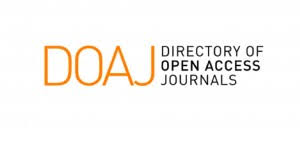Zakat and Economic Development Analysis of Bangka Belitung Towards Sustainable Development Goals 2030
Abstract
This study aims to analyze the zakat and economic development of Bangka Belitung towards Sustainable Development Goals (SDGs) 2030. This program is agreed by various countries in the United Nations (UN) forum. There are 17 targets to be achieved in this program, which is the first target and the eighth target of alleviating poverty in all its forms in all places; And promote the sustainability of sustainable and inclusive economic growth, full and productive employment opportunities, and decent work for all. Both targets can make every region encouraged to think about the right policies to achieve the target of Sustainable Development Goals (SDGs) 2030. The research method uses simultaneous equation model with Ordinary Least Square (OLS) because the variables studied are related to each other. The variables studied are zakat and economic development which is represented by income per capita, poverty, and unemployment. The results of this study indicate that the variable of zakat has a significant positive effect on the economic development variables, namely income per capita and unemployment in Bangka Belitung while the poverty variable has a negative effect.














